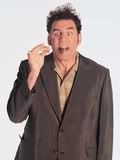WASHINGTON — Pentagon health experts are urging Defense Secretary Robert Gates to ban the use of tobacco by troops and end its sale on military property, a change that could dramatically alter a culture intertwined with smoking.
Jack Smith, head of the Pentagon's office of clinical and program policy, says he will recommend that Gates adopt proposals by a federal study that cites rising tobacco use and higher costs for the Pentagon and Department of Veterans Affairs as reasons for the ban.
The study by the Institute of Medicine, requested by the VA and Pentagon, calls for a phased-in ban over a period of years, perhaps up to 20. "We'll certainly be taking that recommendation forward," Smith says.
A tobacco ban would confront a military culture, the report says, in which "the image of the battle-weary soldier in fatigues and helmet, fighting for his country, has frequently included his lit cigarette."
Also, the report said, troops worn out by repeated deployments often rely on cigarettes as a "stress reliever." The study found that tobacco use in the military increased after the wars in Iraq and Afghanistan began.
Pentagon spokeswoman Cynthia Smith said the department supports a smoke-free military "and believes it is achievable." She declined to elaborate on any possible ban.
One in three servicemembers use tobacco, the report says, compared with one in five adult Americans. The heaviest smokers are soldiers and Marines, who have done most of the fighting in Iraq and Afghanistan, the study says. About 37% of soldiers use tobacco and 36% of Marines. Combat veterans are 50% more likely to use tobacco than troops who haven't seen combat.
Tobacco use costs the Pentagon $846 million a year in medical care and lost productivity, says the report, which used older data. The Department of Veterans Affairs spends up to $6 billion in treatments for tobacco-related illnesses, says the study, which was released late last month.
Along with a phased-in ban, the report recommends requiring new officers and enlisted personnel to be tobacco-free, eliminating tobacco use on military installations, ships and aircraft, expanding treatment programs and eliminating the sale of tobacco on military property. "Any tobacco use while in uniform should be prohibited," the study says.
The military complicates attempts to curb tobacco use by subsidizing tobacco products for troops who buy them at base exchanges and commissaries, says Kenneth Kizer, a committee member and architect of California's anti-tobacco program.
Seventy percent of profits from tobacco sales — $88 million in 2005 — pays for recreation and family support programs, the study stays.
Strong leadership could make the military tobacco-free in five to 10 years, Kizer says. President Obama, he says, could set an example for the military by ending his own smoking habit once and for all. Last month, Obama said he is "95% cured" but "there are times when I mess up" and smoke.
http://www.usatoday.com/news/militar...-smoking_N.htm
What's next Alcohol??? This is what it will lead to. They are already trying to attempt to curb drinking in the military. We have a 0-0-1-3 (Zero DUI's, Zero Underage Drinking, 1 Drink per hour, 3 Drinks per night) guideline that senior leadership is saying we should use.
Sigh...
Lopaka




.gif)

 Reply With Quote
Reply With Quote










Bookmarks